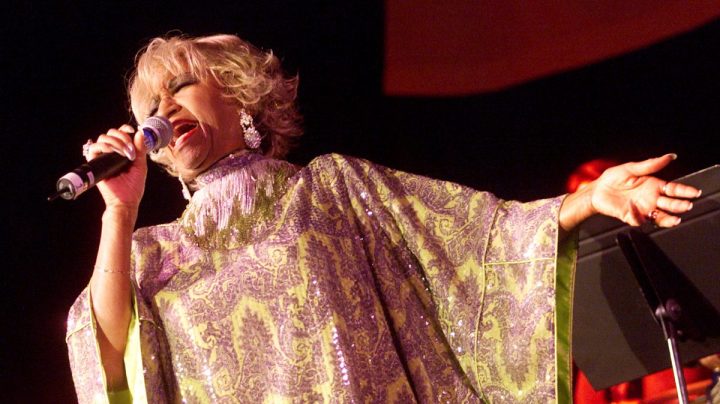This Venezuelan Singer Was Somehow Praised After Performing in Blackface as Celia Cruz on TV Show

Celia Cruz performing at the "Concierto Para Los Heroes" benefit sponsored by The Recording Academy at the Beverly Hilton Hotel in Los Angeles, Ca. 9/14/01. The show will benefit the families of fallen firefighters and police officers of New York City. Photo by Kevin Winter/Getty Images.
Last weekend, social media was flooded with positive reactions to Carlos Baute’s participation in Antena 3’s Tu Cara Me Suena. The Spain-based Venezuelan singer took the stage to perform a rendition of Celia Cruz’s hit single “Que Le Den Candela,” while doing a head-to-toe impersonation (from her voice to her signature mannerisms to her skin color) of the Cuban icon. The overwhelming majority of these reactions didn’t call out him out for performing in blackface; on the contrary, they celebrated the look, completely disregarding the racist implications of this kind of makeup.
While Tu Cara Me Suena is a Spanish TV show, it’s important to note that Latin America also has a long history of allowing blackface to hit the airwaves. It’s likely that Baute grew up on Venezuelan comedy and variety shows where this practice was common – like comedian Emilio Lovera’s classist sketch segment Los Jordan on Radio Rochela, or La Negra Catanare’s distasteful weekly mockery of Cuba’s social situation on Cheverísimo. It’s sadly been normalized all across Latin America, with examples like Geisha Montes de Oca’s blackface impersonation of Amara La Negra on an August 2016 appearance on Dominican Republic’s Aquí Se Habla Español still a fresh wound.
This issue has sparked debates across the world, including Latin America, where there are several examples of blackface in recent history. Egregious displays like Baute’s show the privilege of white and white-passing Latin Americans who intend to wear Afro-Latino identity as a costume, but who will never understand what it means to be Black. To this day, Afro-Latinxs do not see their faces or stories represented in massive media outlets. This invisibility directly affects why this community’s portrayed through tired tropes.
With a significant Black population in the region – Brazil alone is the country with the second biggest Black population in the world – who continuously suffers from racism and even colorism within its own community, allowing entertainers to perform blackface is unacceptable. Of course, the industry should make changes. But audiences should also understand why it’s such a problem, that even though blackface is defended as comedy, it truly only serves to dehumanize a segment of the population.